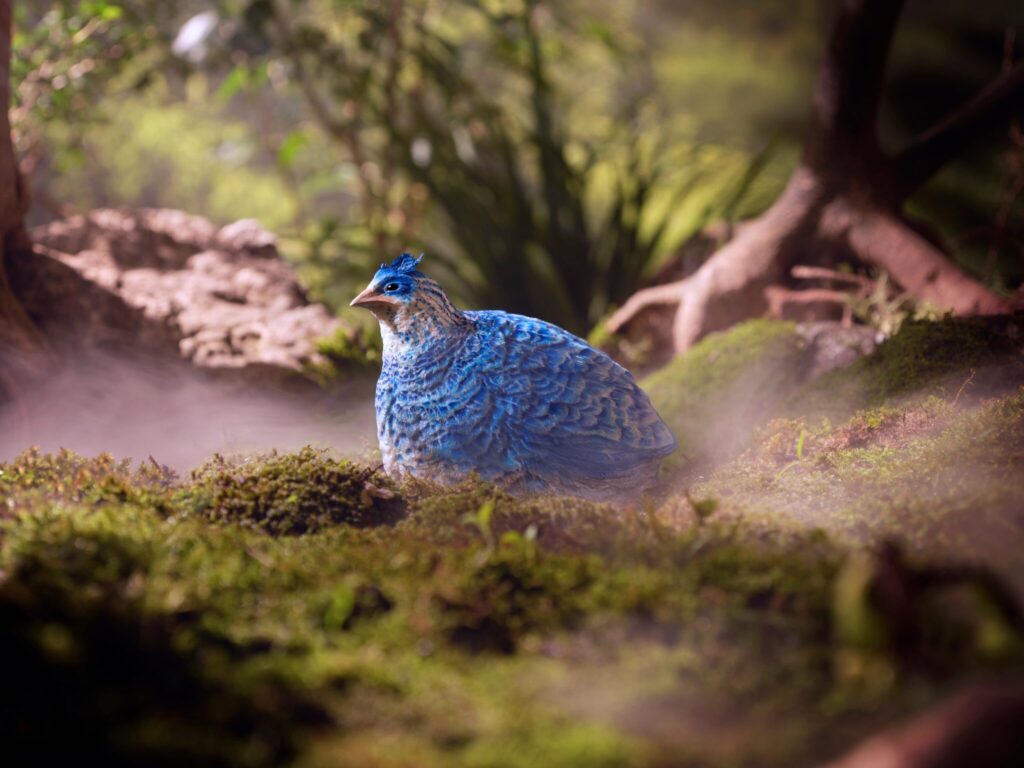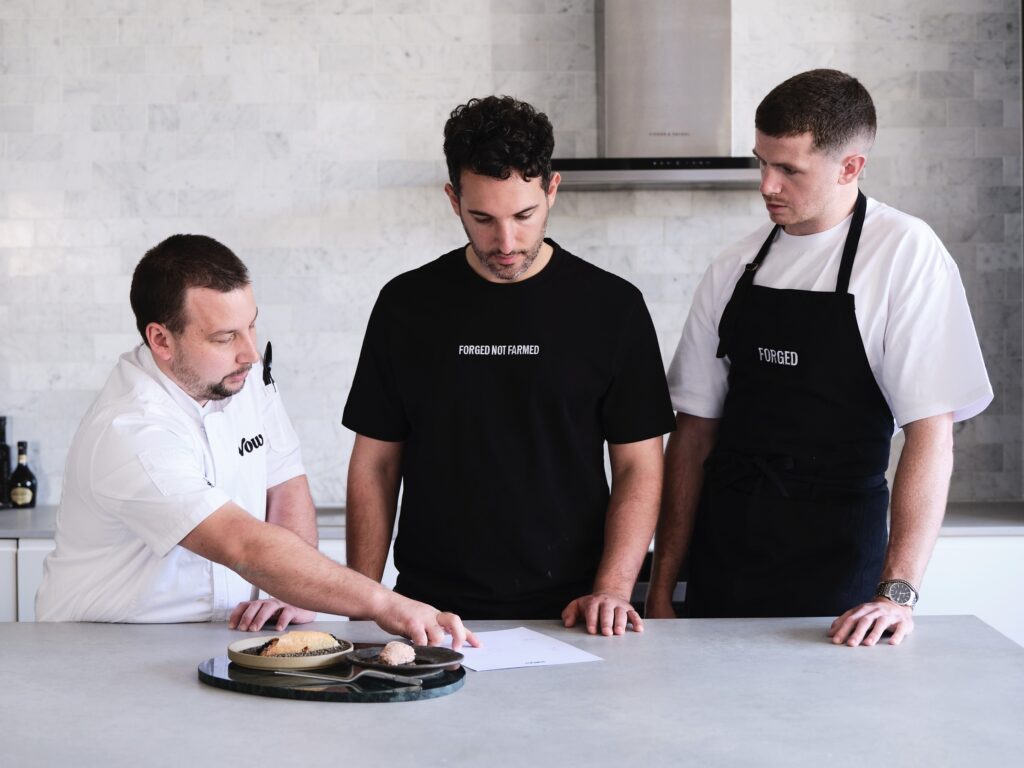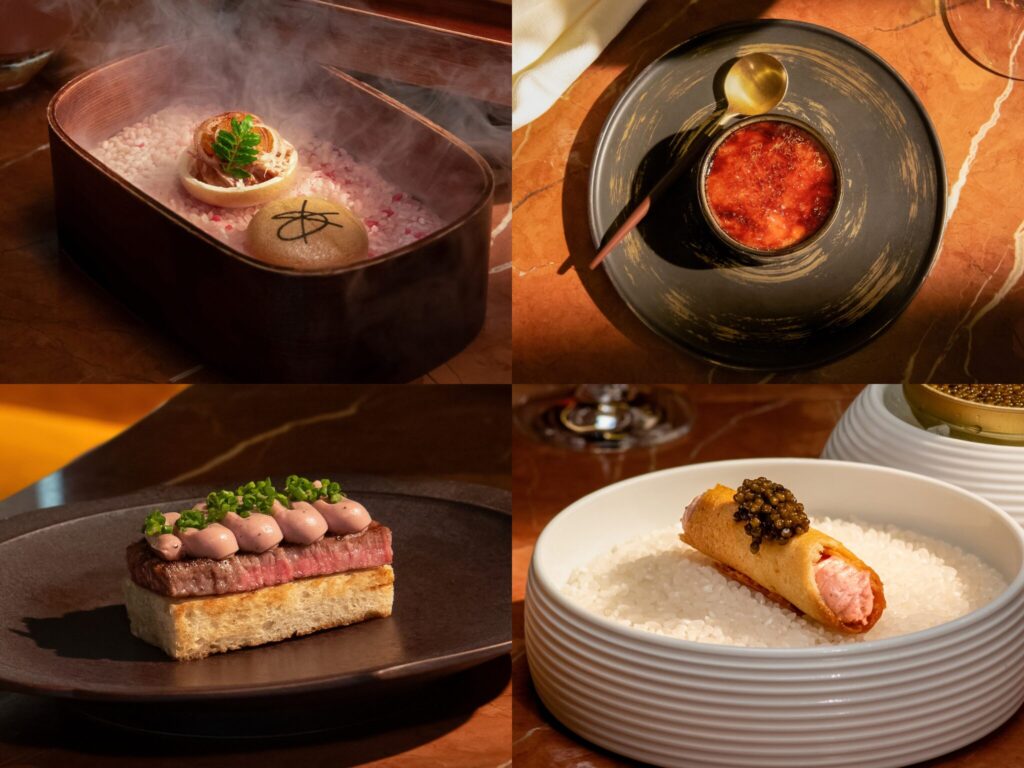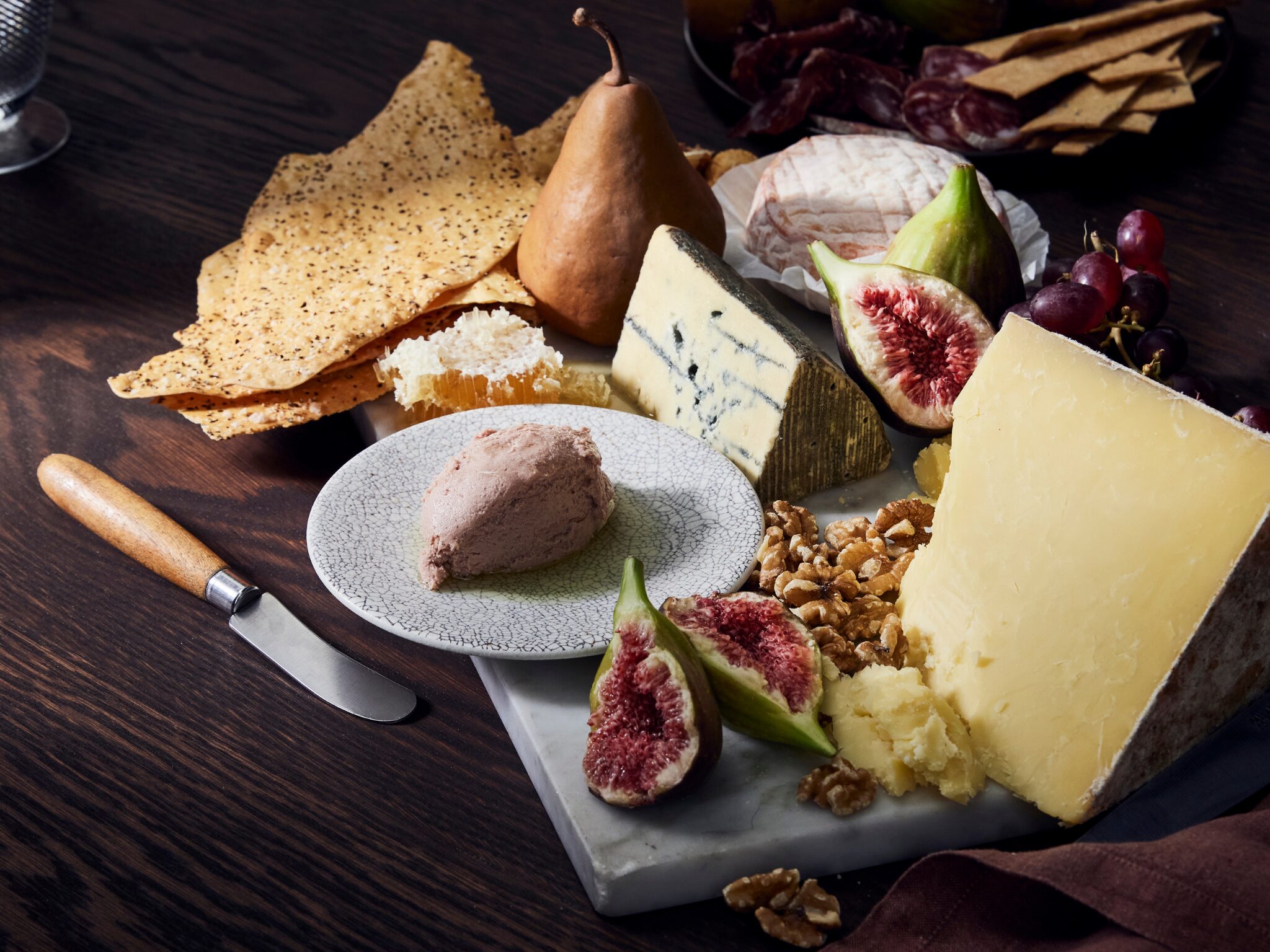Vow Earns Singapore Regulatory Approval for Cultivated Quail, Debuts Parfait at Mandala Club
8 Mins Read
Australia’s Vow has received regulatory approval for its cultivated quail in Singapore, becoming the fourth company to do so globally. It will unveil the product as part of a parfait under its Forged brand at the Mandala Club, followed by other restaurants in the city-state.
A regulatory greenlight, a restaurant debut, a consumer brand launch, and an entirely new concept animal – it’s a big day for Vow.
The Sydney-based startup is just the second company to be approved to sell cultivated meat in Singapore, which will allow it to launch its cell-cultured Japanese quail product – called Forged Parfait – onto diners’ plates, starting today at the Mandala Club, which will host a series of exclusive dinners using the parfait at its Japanese eatery Mori.
As part of Forged, its new premium consumer brand, Vow also invented Quailia, a new concept animal inspired by quail that serves the sole purpose of being “utterly delicious”. The idea is to present consumers with something they’ve never tasted before. “Quailia is a metaphor for what we are doing: creating new experiences rather than replicating food animals make,” co-founder and CEO George Peppou tells Green Queen.
“We believe that the future of cultured meat is not in replicating what already exists, but in creating deliberately different foods designed for meat-eaters,” he says. “This is the first product of its kind to be approved anywhere in the world: not an imitation of chicken or beef, but a truly unique cultured meat designed to elevate our experience of food.”
The Singapore Food Agency (SFA), which assessed Vow’s application for over a year, was famously the first regulator ever to approve cultivated meat when it gave the go-ahead to Eat Just’s chicken in 2020. Since then, Eat Just and fellow Californian startup Upside Foods (also making chicken) have received the greenlight in the US, and Aleph Farms has done so in its home country of Israel for cultivated beef.
Only Eat Just (under its Good Meat brand) and Upside Foods have served cultivated meat products to diners so far, making Vow the third to do so with its restaurant launch. Alongside the Mandala Club, the Forged Parfait will land on the menus of several other eateries in Singapore over the next two months.
A metaphorical bird meant to be eaten

Founded in 2019 by Peppou and chief commercial officer Tim Noakesmith, Vow has raised $56M over three funding rounds, including a $49.8M Series A in 2022. It made headlines – a lot of them – last year after unveiling a wooly mammoth meatball from sheep cells. It garnered everyone’s attention, with some questions raised over the intentions of the project.
“We needed to do something so outrageous that it would break through into mainstream media,” Peppou told Green Queen in the days after the announcement. While the meatball wasn’t something Vow was intended for commercialisation, its cultivated quail very much is.
The startup has always talked about its intention to “invent entirely new meats” that “meat-lovers can and would choose selfishly”, and has been known to work with zebra, alpaca, water buffalo, kangaroo and crocodile cells. The development of Quailia is an extension of this vision, with the company referring to it as a “carefully crafted subspecies of the Japanese quail”.
It takes inspiration from the bird’s scientific name, Coturnix japonica, adopting the moniker Coturnix Fornax instead. Vow describes Qualia as a blend of flavours and textures that unlocks an “unparalleled gastronomic experience” and, crucially, a bird that has no heart, beard, feather or bones. “Quailia is the ultimate expression of what we do – create foods that are intentionally unlike anything we’ve had before,” says Peppou.
The company conducted a 1,000-person survey of Singaporeans who frequent high-end restaurants, and found that more than half want to experience never-before-tasted ingredients. It’s why it decided to debut the product as part of a parfait, which is made up of 60% of its cultivated quail, butter, shallots, tapioca starch, port wine, brandy, garlic, vegetable and fruit concentrates, olive oil, salt and thyme.
The Quailia itself, meanwhile, is 100% cultivated quail cells, eschewing the hybrid approach being adopted by the likes of Eat Just, Aleph Farms, Dutch producer Meatable, and others. “We believe in creating entirely new food experiences,” Peppou says. “Quail is a great way to introduce consumers to this. It’s familiar enough to be interesting, but not something eaten regularly enough for consumers to have a strong view of what it is and isn’t.”
Vow prides itself on speed and cost efficacy

In October 2022, Vow opened one of the largest cultivated meat facilities in the world. Dubbed Factory 1, it is said to be capable of producing 30 tonnes of product per year. It simultaneously announced that it had begun developing a sister site, Factory 2, which would have the capability of manufacturing 100 times more cultivated meat. Peppou kept his cards close to the chest about the second facility, but hinted that “it’s going very well”.
It will help the company push past a huge industry bottleneck. Scalability is one of cultivated meat’s biggest challenges, and has impeded the continued progress of such products’ market availability. “So far, the global cultured meat industry has suffered from a lack of scalability,” says Peppou, “and products that promise improved sustainability or reduced environmental impact but offer nothing new in terms of taste, texture or appeal when compared to the existing meat offerings.”
He adds: “At Vow, we’ve cracked both those challenges by creating an irresistible product that consumers will want because it’s unlike anything else on offer, and that we are already producing at commercial scale.”
Vow COO Ellen Dinsmoor confirms that at present, the company is producing over 100kg of product per month and “will continue to ramp up production as Forged launches in more venues in Singapore and more jurisdictions around the world”.
She adds: “We’re doing it for a fraction of the capital of the largest cultured meat companies in the world.” For context, Eat Just has raised over $850M, Upside Foods has brought in $608M, and Aleph Farms $115M. The five-year-old business also notes that it has commercialised in half the time of some of these companies.
Speaking to Green Queen founding editor Sonalie Figueiras on the Green Queen in Conversation: Cultivated Meat Pioneers in October, Peppou had explained that Vow’s first product would be foodservice-only. “How do you make sure people’s first contacts and first experiences are as positive as possible, especially when there is a product that has some assumed knowledge around how you cook it? How do you have a great experience?” he noted, outlining his thinking.
He now confirms these plans, saying that the company is “entirely focused on foodservice” for Forged, with “no imminent plans” for a retail launch.
You can taste Forged Parfait as part of a seven-course meal

“We knew we wanted to launch our products into the Singaporean market first, not only because of the globally renowned culinary scene, but also because of the clear regulatory pathways and the ease of doing business,” notes Dismoor.
The SFA’s assessment process is described by Vow’s head of regulatory affairs Andrew Janis as “amongst the most rigorous in the world”, and one that sets a “clear benchmark for other jurisdictions in Asia”. “Singapore was an obvious choice for Vow given that the SFA has significant experience assessing cultured meat and is regarded as a global leader when it comes to regulatory rigour,” he says.
“We have been deeply impressed by the SFA’s commitment to food safety and are confident that their approval will set us up well as we look to enter additional markets,” Janis added. Speaking of which, Vow is currently in the middle of the public consultation stage of the regulatory process in Australia and New Zealand, with the next round due to open towards the middle of the year. The company has indicated that it is engaged in conversations with regulators on four continents.
For the Forged Parfait, it collaborated with Ryan Clift, chef-owner of contemporary eatery Tippling Club, who has been working with the brand for two years. “I’m so blown away by the profile of this product. It’s sweet, has a beautiful, delicate flavour, and the texture is always perfect. It’s the perfect parfait.”
The product’s Mandala Club debut will run from April 12-27, where intimate seatings of only 14 guests will experience a S$289 ($214) seven-course Omakase menu featuring the cultivated quail. Curated by Mori head chef Chun Hong La and Forged chef Adem Kurcan, the menu features savoury cannoli filled with Forged Parfait and served with Black Pearl caviar; a Hokkaido Wagyu Sando (a milk bun topped with A5 Hokkaido Wagyu and Forged Parfait), and Forged Brûlée (layered with port jelly and cognac-poached morels).
“It’s really about finding those true fans, finding the people that are really engaged, and have been on that journey with us, bringing them together, and learning as much as we possibly can about what they love about it, and how they talk about it,” Peppou said on Green Queen’s podcast last year. “The first few months for us are going to be about learning from consumers and learning from customers before we go and try to scale out to heaps of different restaurants and food service. So, there’ll be lots of small, intimate pop-ups all over the city, which will give you a chance to taste.”
He added: “We have a chance to really shape and change our food system. We have a chance to take an experiment with meat in a way that no one else has been able to, and that’s always been the thing which excites and inspires me, and do so in a way which creates positive benefits. I think Vow will be successful, if we either directly, or through inspiring the direction of others, are able to shift at least a single-digit percentage of meat consumption away from animals to something else.”
Vow may not be the only cultivated meat company to receive SFA approval this year, with Meatable and France’s Vital Meat both poised to get the greenlight soon.




